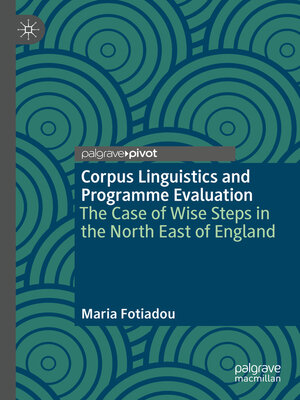Corpus Linguistics and Programme Evaluation
ebook ∣ The Case of Wise Steps in the North East of England · Social Sciences
By Maria Fotiadou

Sign up to save your library
With an OverDrive account, you can save your favorite libraries for at-a-glance information about availability. Find out more about OverDrive accounts.
Find this title in Libby, the library reading app by OverDrive.



Search for a digital library with this title
Title found at these libraries:
| Library Name | Distance |
|---|---|
| Loading... |
This book provides a comprehensive exploration of the Wise Steps programme, part of the Building Better Opportunities (BBO) initiative aimed at tackling social exclusion in the North East of England. The book offers a unique analysis of a corpus of 33,000 words derived from feedback provided by 476 unemployed or economically inactive individuals, using advanced corpus linguistics methods to extract meaningful insights from participants’ open-ended responses. By analysing the language used by participants, the book uncovers the programme's impact on employment outcomes and broader well-being, including mental health, confidence, empowerment, and social inclusion. The study also demonstrates the value of linguistic analysis in programme evaluation, providing a richer understanding of participants’ experiences and challenges that quantitative data alone cannot capture. The book compares the Wise Steps programme to traditional government employment services, highlighting the programme’s holistic, person-centred approach. Participants consistently expressed appreciation for the empathetic, non-judgemental support they received, in contrast to the often impersonal nature of conventional employment services. This book will be of interest to academics and students in the fields of Linguistics, Career Services, and Employability. It will also appeal to professionals in Third Sector organisations and Monitoring and Evaluation researchers. Emphasising the importance of qualitative data analysis in programme evaluation, it presents a practical approach for incorporating linguistic insights into the assessment of social inclusion initiatives.







